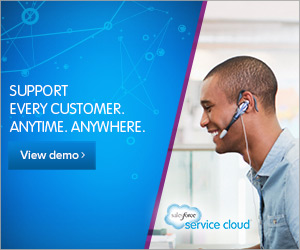
Cloud computing offers flexibility for small business - and more
Cloud computing is the next wave in business technology, but it’s still not quite mainstream. Many small business owners or start-up entrepreneurs might not be aware of its potential to speed up work processes and increase productivity.
Time would be well spent looking into the advantages of these innovations when considering how to improve and streamline operations. People starting out in some enterprise or engaging in new projects are in the best position to adopt the cloud when setting up their business. It’s worth the time to go over what cloud computing is and how beneficial it is to small and fledgling businesses, and in particular, your business.
Essentially, cloud computing is a way of making computing services and software into a utility. Instead of having computer hardware to run everything, you outsource the actual processing and only use a small terminal to access it. Many cloud services are ‘pay as you go’, meaning you’re not locked into a contract or spending a large proportion of your budget on hardware that may not be used to its full capacity in the early days. Cloud servers or hosted software applications are technologies that, if implemented, will save you money as compared to more ‘traditional’ alternatives. Some extremely useful applications are even free, like Google Docs, which provides document storage, word processing and spreadsheet functions. Storing your documents ‘in the cloud’ can offer you some business continuity should your server fail or you are unable to access the office. Cloud computing also allows your data storage and application usage to take place on remote servers. This way your data is stored remotely and is insured against loss, as well as being accessible from any remote computer your business uses.
The most important benefit of cloud computing technology is the savings.It dispenses with the need for capital expenditure and can be a real boon for a start-up. You pay simply for the service and the bandwidth you use. It is quite possible to use these services for years (gaining income from the productivity and efficiency it can bring) before equaling the amount it would have cost you to buy your own hardware.This is even before you consider the expense of maintenance and necessary upgrades for your own infrastructure.
The second most important benefit is remote access. All of your data and all of your applications are stored remotely; all it takes is a computer, an internet connection and login information to access the cloud. Any employee anywhere with these elements can access it — they don’t need to be in the office to do so. Letters, invoices, spreadsheets, even databases, can all be created and maintained within the cloud. Google Documents is one cost-free example already given. Open Office is another cloud-based office suite. For a small cost, hosted project management software will enable members of your team to collaborate on projects, without having to be in the same office, or in an office at all. Cloud applications have the potential to change the way we work and conduct business forever.
As long as the reputable cloud providers are still around, all your cloud data and applications will be safe and secure. The problem, with this technology, used to lie in the possibility that the technology wouldn’t be widely adopted. Fortunately, it’s well on its way to widespread use, and the largest cloud providers such as Amazon and Google are highly likely to keep your information secure.
Cloud computing is also a highly green option. All of the infrastructure is already in place, and doesn’t require you to purchase hardware, which in turn saves money and the ecosystem by not putting more computer equipment into landfills. Allowing your employees to work from home or remotely, if they need to, saves on the carbon emissions that would have incurred if they had to commute to work. All it takes is internet connected computers and the energy to power them.
Small businesses benefit greatly from green practices. After all, many cost-cutting measures involve eliminating paperwork, cutting back on network infrastructure and hardware, and even saving on utilities. All of this is done by switching to cloud computing.
About the Author: This is a guest post by Laura Kay; freelance tech and business writer.













